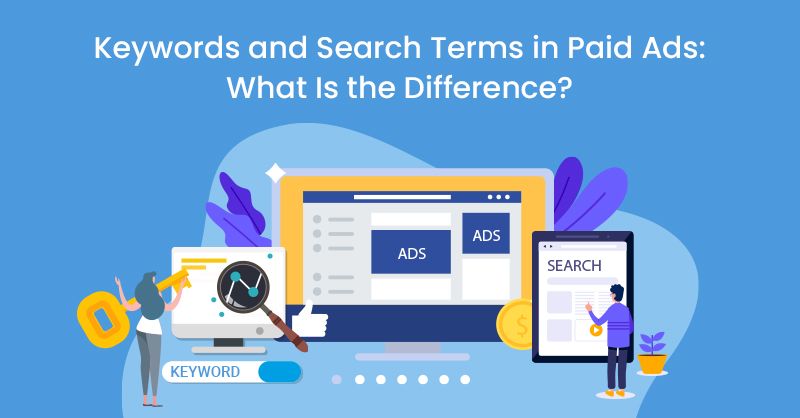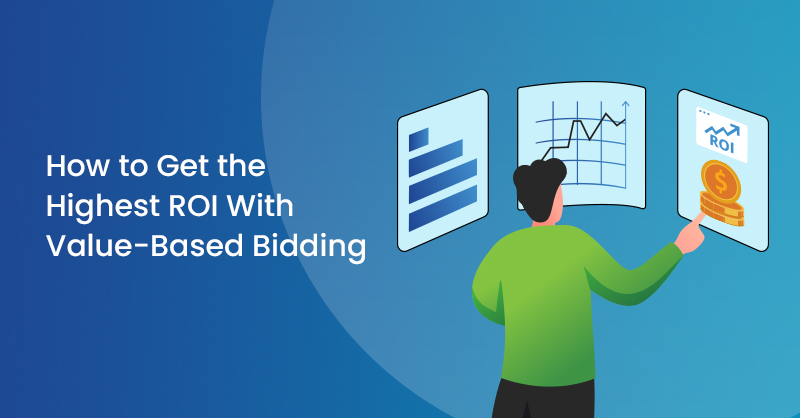In a memorable scene from the 1987 classic film, The Princess Bride, the brawny giant Fezzik faces off with the wily “man in black.” Despite his superior size and strength, Fezzik can’t seem to land a hit on his nimble opponent.

I’ve seen a lot of companies in the same boat when it comes to paid search marketing…especially B2B companies. They have large, well-funded accounts, but can’t seem to make a sale.
For example, one account I audited recently spent over $150,000 on pay-per-click (PPC) advertising without a single dollar of revenue to show for it.
As he floundered in the “man in black’s” choke-hold, Fezzik discovered what he was doing wrong. He’d been used to engaging gangs and other large groups, but (in his own words) “You use different moves when you’re fighting half a dozen people than when you only have to be worried about one.”
This revelation came too late for Fezzik, but if you’ve found yourself in a similar situation—with an unprofitable PPC campaign choking the life out of your B2B company—it’s not too late for you!
This article will explain the differences between PPC marketing for B2B and B2C companies, and some of the “moves” you can use to take advantage of these differences.
How B2B is Different
If you sell directly to consumers (a B2C business model), then online marketing is a lot like “fighting half a dozen people.” Often your market will be very large, so you can get away with keywords and advertisements that attract a more general audience.
For example, if you sell car parts, then your market is every auto shop and DIY home mechanic out there—a pretty big group!
But what if you specialize in programming the software in cars? Then you’re really only interested in getting the attention of a few key manufacturers.
In cases like these you’ll want advertising as precise as is your niche. If you use keywords and ads aimed to attract large numbers of consumers (as in a B2C strategy), you’ll probably get a lot of clicks, but since you’re not selling a consumer product you’ll probably end up frustrated when none of those pricey clicks turn into sales.
Such was the experience of the jaded B2B company I mentioned earlier. They offered translation services for international businesses. This was a very specific niche, but they had invested in generic keywords, like “translate.”
That word gets a lot of searches—over 150,000 per month—but how many of those searches do you think are hoping to find corporate interpretation services? None.
This company spent $60,000 on this word alone and never got a sale out of it.

Companies looking for B2B services generally don’t use generic search terms. They don’t search for product names or features either. So what in the world DO they search for?
What Businesses Search For
Businesses search for pain points.
Pain points are problems which a potential customer has which they cannot solve themselves. And when they can’t find a resolution internally, they start to look outward.
To return to my car example, If you wanted car manufacturers’ attention you wouldn’t invest in keywords like “brakes” (too general) or “anti-skid software” (specific, but probably already have this, so they wouldn’t be looking for it). You would create ads that responded to common software glitches, or reasons that cars get recalled. These would be pain points for the company that would send them searching for a solution.
Prove that you’ve got the solution for a pain point, and you’ve got a new customer!

Leveraging Lifetime Value
All of this sounds simple on paper, but finding the secret recipe that satisfies the tastes of a specific audience can definitely take time and money.
Thankfully, B2B advertising has a major advantage over B2C strategies which can help you overcome this obstacle: Lifetime value.
Lifetime value (LTV) is the total value of a customer, including not only their original sale, but also all future payments which they may make in a long-term relationship with your company.
For consumer-oriented businesses lifetime value is pretty low. The average ecommerce sale is worth $85 to $120, and they’re often one-and-done deals. Even if a customer gives occasional repeat business you’re probably looking at less than $300 LTV.
Of course, then there are your fulfillment costs which will knock your net profits down to about $150 LTV, and the fixed costs of your business might bring that number down to $100.
With so little net profit, you don’t have much financial wiggle room to invest in finding the perfect marketing formula.
B2B companies, however, have much more valuable transactions. They typically come in the form of a long-term business relationship worth anywhere from tens of thousands to millions of dollars.
Even if your net profit is modest, this kind of value will justify spending even thousands of dollars in order to correctly identify the market’s pain points and make sales happen.
Putting These Principles to Work
Let me show you how this process worked for a real B2B client of mine.
My client’s business was in the insurance sector and wanted to break into PPC advertising. They had calculated that they would be profitable if at a cost-per-lead of $150, but they were afraid that their first-time efforts wouldn’t be so successful.
They had some ideas about potential pain points for their customers, but weren’t sure what would resonate most strongly.
Thankfully, their sales had a lifetime value ranging from $1,000 to $10,000 on average, which we figured justified a little initial experimentation to discover the best marketing approach.
So, based on initial impressions of the market’s pain points, we launched a 2-week shotgun campaign with a wide variety of keywords.
Not every keyword in this initial campaign was successful. In fact, most were not. Cost per lead went up to $250, which made these two weeks unprofitable in the short term.
However, we had high-quality analytics in place before we began this campaign, and at the end of the trial we were able to draw out some priceless data.
To do so, we opened the AdWords account and created a filter for the experimental period, as seen below:

This identified all of the keywords which had a conversion rate higher than 2%.
These top performing keywords were a very small portion of the original campaign, which was expected. Data from over 2,000 AdWords accounts that I have audited suggests that the average account gets all of its conversions from only 6% of its keywords. This trend is especially true among B2B portals, where niche markets respond to a smaller portion of keywords.
Having identified which keywords were actually producing value, we purged the account of all the rest of the terms.
This marked a turning point in account performance. Wasted ad spend plummeted, conversion rate soared, and cost per lead was cut in half, instantly making the PPC campaign profitable!

We didn’t stop there though. Having learned what parts of the campaign the market responded to, we instituted a systematic landing page strategy which brought landing pages into closer alignment with ad messages, and used A/B testing to learn more about the market’s tastes.
As a result, clicks and conversions climbed in an upward spiral that redefined success for the company and eventually led to millions in VC funding.
Conclusion
PPC can work for B2B companies just as well as for B2C. You just, as Fezzik suggests, need to use slightly different moves.

B2B customers search the web differently than B2C, but their lifetime value is high enough to justify a little experimentation. Once you find the right pain points in your market and target your advertising to address them, you will be well on your way to revolutionizing your business.






on
Great Article